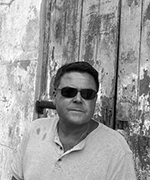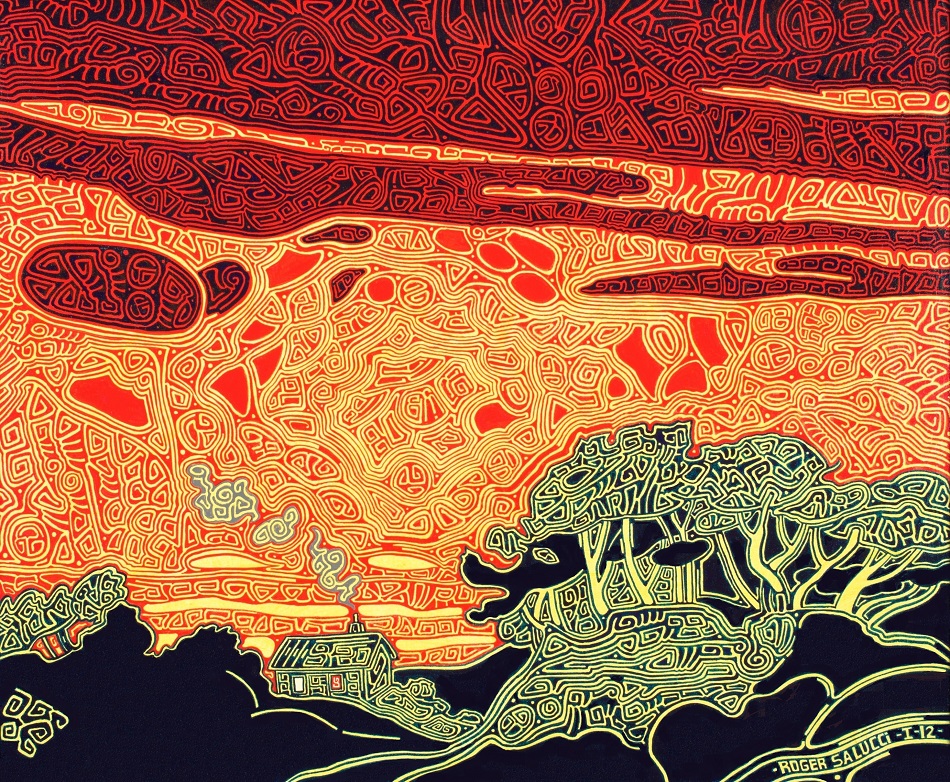By Fred Arroyo
My father was never a keeper of time. In the third grade his father made him quit school to begin working. Time might’ve been what my father wished for the least, what he wanted to forget. I’ve closely watched how time silently patterned his body, his hands: he picks up a spade and strikes deep into the earth with one decisive slice, swings his gleaming machete through cane, each piece the exact length of his forearm, slides underneath a jacked-up car with a wrench, his knuckles streaked with grease under the bright lamp flooding his thin workspace; three or four months straight stumbling around the living room, knocking against a door jamb, peeing in the corner of his bedroom, and then the days of moaning and crying, the violent tremors and shakes as he tries to raise a spoon or cup to his lips, seconds for sobriety filling his fingers with such caution, regret, and failure. His attention pulsing through his hands, his eyes, his tense shoulders—such elegance in the briefest of gestures—as I watched in drunk-time, sober-time, and work-time how there was no time for a watch.
The faces on these watches are the same—tan, star-like, rimmed in gold, always open. Their hands don’t turn, and one watch has a broken band, the small pin that holds it in place, lost, a severed lone arm. I never really liked wearing watches, and maybe do so because many around me do. Part of one’s fashion, a watch going good with a cuffed, pressed shirt. Years will pass when I don’t see my father, and then we are together and he’ll gift me a timepiece. He seems to forget that he’s given me a watch the time before; this new one not much different than the last, the same thick, brown band. They seem sturdy, like the leather on an ox pulling a cart stacked with cane. They’ll work and last forever, take in sweat, dirt, rain, the Milky Way. Pulsar watches are not very expensive, although I sometimes look at where my father is headed in old age, and I imagine they might become part of a small fortune he’ll need. I think he equates my being a professor with a watch (I have so much time on my hands), and there’s some kind of leisure there, too, like at the end of a long day when he walks through a plaza under the swaying palms wearing a nice short sleeved shirt, his brown wrist shiny with a watch.
Chronology: Most mornings I create my special logos of time. I love to lose minutes, hours, a whole morning slipping past noon, and if truth is told time itself I hate: I am a watcher of memory. I never wear a watch when I write. I unbuckle the band, fold the leather in my hand like a bird’s wings pressed into my palms, let them pulse there for a minute, turn the face down against my wood desk, and then, for a moment, watch those wings spread back out, lift and rotate and turn a thousand pulses per second, a hummingbird radiating into my work, my hands.

Fred Arroyo’s “Pulsar Watches” is a part of his Sown in Earth: Essays of Memory and Belonging, published by the University of Arizona Press (2020). He is also the author of Western Avenue and Other Fictions, and The Region of Lost Names. His writing has appeared in the anthologies Camino del Sol: Fifteen Years of Latina and Latino Writing and The Colors of Nature: Essays on Culture, Identity and the Natural World. Fred is working on a book of poems, Emigrant Creek and Other Songs, and collection of short fictions, The Book of Manuels. His short story “Paso Fino” appeared in the Fall 2022 Watershed Review.

